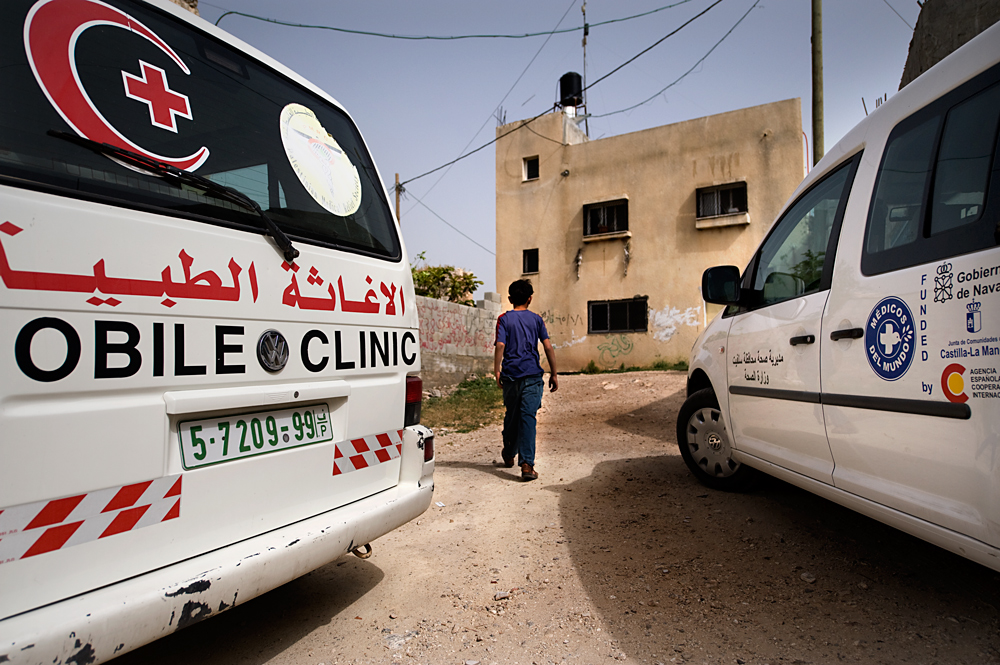41 organizations warn of Palestinian health sector crisis

Continued military operations are compounding a health care crisis in Gaza, with hospitals ill-prepared to meet the critical needs arising from a wide-scale emergency right now. The signatory organizations are calling for an immediate ceasefire, noting that all parties must respect international humanitarian law and abide by their obligations to protect civilians from harm. During armed conflict, the organizations noted that hospitals, health care facilities, ambulances, medical personnel and the wounded and sick are all afforded specific protection under international humanitarian law.
Over the past eight days, at least 138 civilians in Gaza have been killed and over a thousand more have been injured, including one doctor killed and 19 paramedics or medical personnel wounded. Four ambulances and six hospitals or health centers in Gaza have been damaged by Israeli airstrikes and one rehabilitation center for the disabled was destroyed. In Israel, no civilians have been killed but dozens have been injured.
Escalating violence hits particularly hard as Gaza’s health sector has been suffering from an acute shortage of fuel and supplies, with 54 percent of medical disposables and 28 percent of essential drugs at zero stock. Some hospitals are reporting that they do not have sutures, materials to treat bone injuries, or enough reactive agents to perform routine blood tests. The Ministry of Health in Gaza has just 10 days worth of the fuel reserves it needs and with power cuts caused by the chronic lack of electricity, many hospitals have long stopped providing primary and women’s health services and are now closing off wings and shutting off what machines they can. The lack of fuel also means that 25 percent of the health ministry’s ambulances have stopped running while services from mobile clinics and community health centers have also been cut or reduced.
The organizations called on the International Community to work effectively with the government of Israel, as the primary duty bearer, to ensure an immediate and sustained opening of the crossings so that patients can access the care they need and Gaza’s hospitals can restock critically low supplies. The ongoing Israeli blockade and the more recent closures of the Rafah border crossing continues to impede civilians in Gaza from accessing health care beyond the besieged coastal strip. In 2014, Israel denied approvals for 15 percent of patients referred for medical procedures in Israel and the West Bank, while the number of patients able to cross through Rafah into Egypt dropped by 95 percent.
The organizations also stressed that the International Community must support the Palestinian government in assuming its responsibility to fund and operate a coherent health care system in both Gaza and the West Bank, including East Jerusalem. In East Jerusalem, Palestinian hospitals that receive Israeli-approved patients from Gaza are facing increased demand for emergency services as tensions in Israel and the West Bank have continued over the past month. Amidst a cash flow crisis, Augusta Victoria and Makassad Hospitals fear that their life-saving services will soon be seriously compromised as they are struggling to ensure quality, low cost care to Palestinians who are sick or those injured by violent confrontations in Gaza and in the West Bank.
- Action Aid
- Action Against Hunger (ACF)
- American Friends Service Committee (AFSC)
- Al Ahli Arab Hospital, Gaza
- CISP
- Cooperazione Internazionale (COOPI)
- CCFD-Terre Solidaire
- DanChurchAid (DCA)
- Diakonia
- Doctors of the World – Medicins du Monde France (MdM F)
- Doctors of the World – Médicos del Mundo Spain (MdM ES)
- Doctors of the World – Medicins du Monde Switzerland (MdM CH)
- Gruppo di Volontariato Civile (GVC)
- Handicap International
- HelpAge International
- HEKS
- International Learning Centers (ILC)
- International Medical Corps (IMC)
- KinderUSA
- Kvinna til Kvinna
- Medical Aid For Palestinians (MAP UK)
- Mennonite Central Committees (MCC)
- Mennonite Central Committees Office to the United Nations
- Near East Council of Churches, Department of Service to Palestine
- Refugees, Gaza
- Norwegian Church Aid (NCA)
- Norwegian People’s Aid (NPA)
- Oxfam
- Polish Humanitarian Action (PAH)
- Première Urgence – Aide Médicale Internationale (PU-AMI)
- PNGO
- Solidaridad Internacional- Alianza por la Solidaridad (SI-APS)
- Swedish Organisation for Individual Relief (SOIR)
- Secours Islamique France (SIF)
- Terres des Hommes Italy
- Terres des Hommes Lausanne
- The Carter Center
- The Israel-Palestine NGO Working Group at the United Nations
- The Lutheran World Federation
- Quaker Peace & Social Witness (QPSW)
- Vento di Terra
- WeEffect
While a ceasefire and end to the violence are urgently needed, the organizations said that the International Community must do more to find durable solutions to the conflict, including by working with the parties to end the blockade in Gaza and ensuring all parties respect their obligations under international humanitarian law.